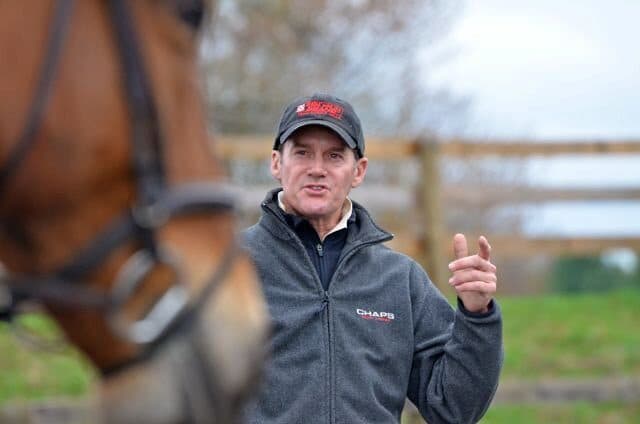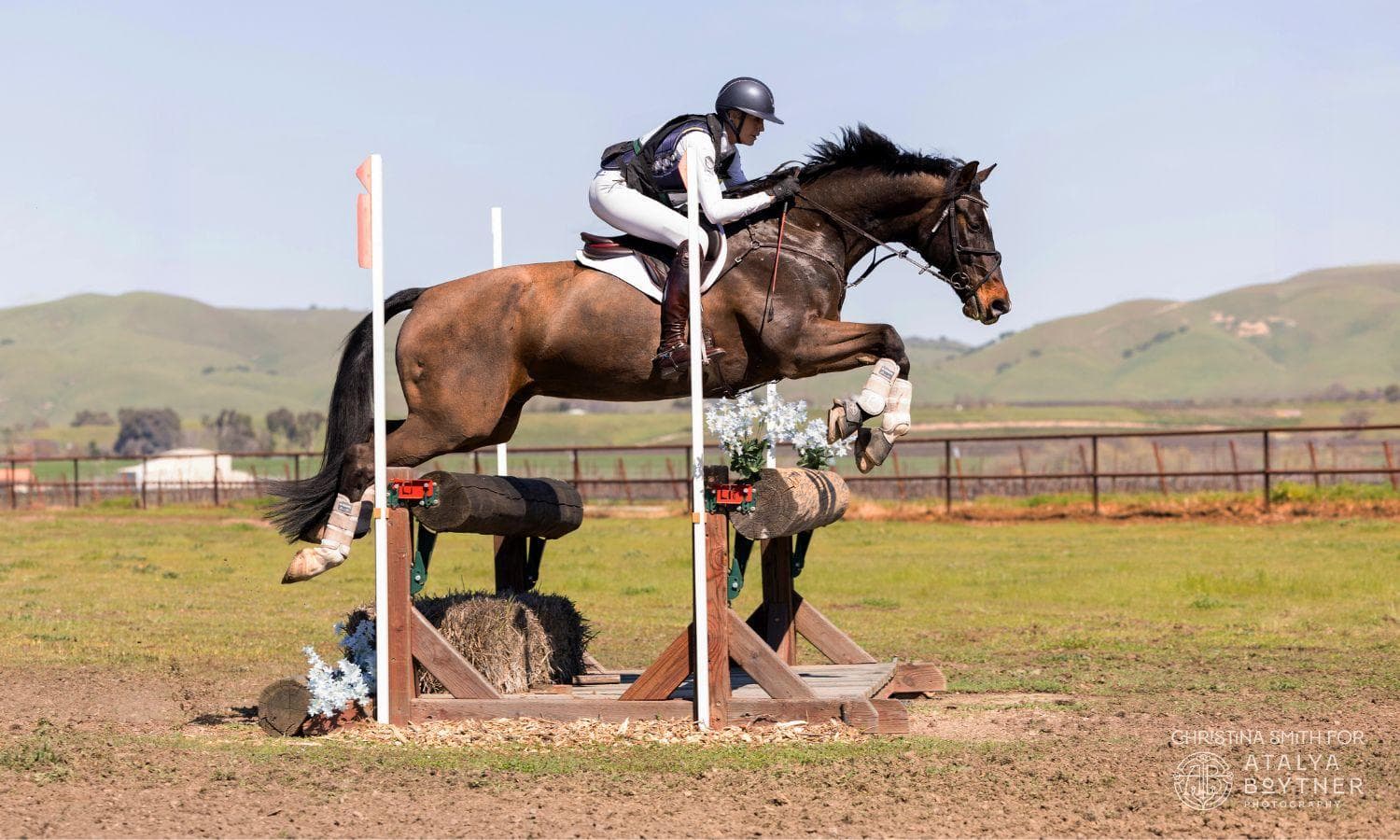Featured Clinician: Stephen Bradley

The Featured Clinician article series is provided through a partnership between Event Clinics and the USEA.
One of the most widely recognized names in the eventing industry, Stephen Bradley has won various prestigious competitions including the Land Rover Burghley CCI4* (one of only two Americans to do so), Canada’s Checkmate International CCI3* three times in a row, and the Rolex Kentucky Three-Day Event. He is also a two-time Pan American Games Gold medalist. He rode on the 1992 US Olympics team in Barcelona, Spain and was named Equestrian Athlete of the Year by the U.S. Olympic Committee. Stephen is currently based out of historic Long Branch Estate in White Post, Virginia where he trains and teaches aspiring eventers of all levels.
Bradley’s exceptional ability to understand what each horse needs to reach its highest potential gave him the nickname “The Horse Whisperer” early on in his career. Today, Bradley is equally well regarded for his ability to inspire confidence in riders of all levels. As an instructor, he conducts regular clinics and camps throughout Area II as well as nationwide.
According to Bradley, his favorite part of teaching clinics is “getting to know and understand where each individual horse and rider combination are at in their education. My goal as an instructor is to build on where they are at and give them opportunities to improve”.
When teaching or training, Bradley focuses on establishing a methodical system of communication between horse and rider. He explained, “The majority of my teaching comes with improving the quality of the basics.”
Bradley noted that he is realistic that not every exercise he prescribes to a horse and rider combination is going to work perfectly the first time. However, he asks that riders in his clinics come in willing to consider new approaches. “My expectation of riders who attend my clinics is that they come with an open mind. They should be willing to try ideas or exercises I believe will help them to improve. That's not to say everything is going to work perfectly the first time, or they're going to go home and utilize everything that we work on together, but I at least want them to try.”
Bradley feels that the students who are willing to try something new are in the best mental place to be prepared for his clinics. “They might try a new length of stirrup, or riding with a bridge in their reins for the first time, for example.” He consistently sees such students finish as better riders, with better horses underneath them, than students who come in reluctant to try new techniques. He noted, “Riders who come into a clinic not wanting to learn and try new things will have a hard time leaving the clinic as a better pair.”
Bradley revealed that he thoroughly enjoys teaching cross-country (as many eventers like this phase the best!), but believes strongly that “any jumping phase always comes back to basic flatwork.” He stated that, regardless of which phase is the instructional focus, it always comes back to the importance of dressage.
No matter which phase he is teaching, Bradley often uses a common phrase to communicate with riders when he teaches. He explained, “I like to bring riders back to the basics, so they can visualize how their horse should move." Specifically, he likes to use a metaphor of the horse being on a balance beam. He tells his riders to imagine their horse walking, trotting, and cantering on a balance beam. When jumping, the rider should imagine their horse “leaping, or leaping multiple times, still on that balance beam.”
Bradley observed that education and learning with horses is a lifelong pursuit. “The best advice that I'm glad I took is that ‘If you are going to make a career of horses you have to be in it for the long haul.' Bruce Davidson told me long ago, when I was just starting my career, that years down the road I'll look back and say, ‘If I only knew then what I know now’. For me, as I've gotten older, that has only become more important and ingrained in my feelings and thoughts.”
Bradley let us in on a couple other interests he has outside of horses. He told Event Clinics, “I love to cook!” He also recently read “The Good Son" by Christopher Anderson. "The Good Son" explores the complex relationship John F. Kennedy Jr. had with his mother, Jackie Kennedy Onassis, after the death of his father, President Kennedy.
Frankly, we’re amazed that Stephen Bradley finds time to do anything outside the barn. He has a busy clinic schedule already queued up for 2018! If you are interested in riding in or auditing an upcoming Stephen Bradley clinic, check out his website or his Event Clinics calendar.















